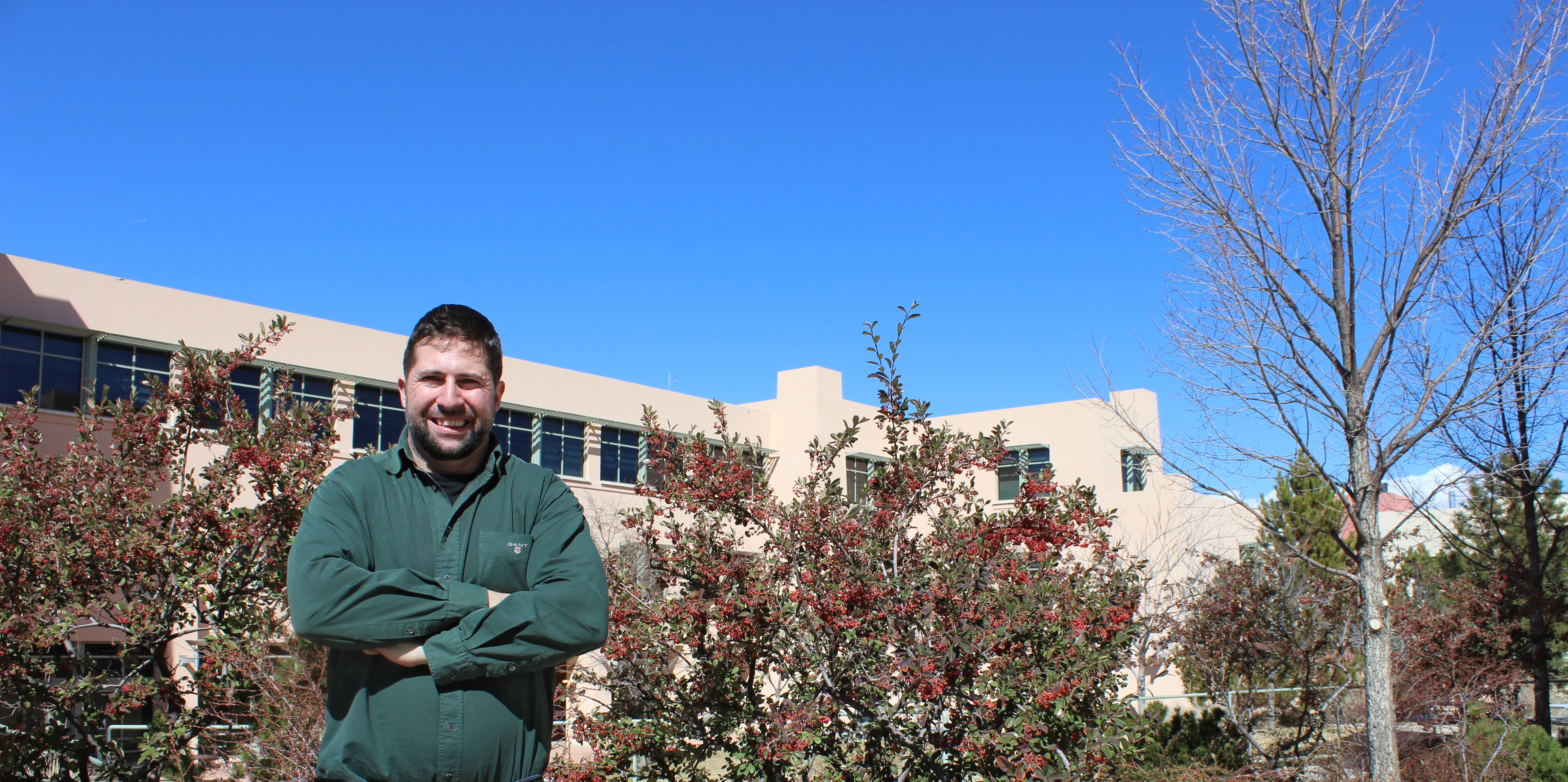Recent News
UNM joins Brown University in national institute focused on intuitive, trustworthy AI assistants
August 6, 2025
UNM Engineering team wins ASEE best paper for work on first-year engineering course
July 17, 2025
New director will enhance interdisciplinary engineering learning opportunities
July 2, 2025
Final SIRI cohort visits UNM campus
June 30, 2025
News Archives
Engineering professor honored with NIH Trailblazer Award for drug-delivery project
March 26, 2020 - by Kim Delker

Francesco Sorrentino
Francesco Sorrentino, associate professor of mechanical engineering at The University of New Mexico, has been awarded the National Institutes of Health Trailblazer Award from the National Institute of Biomedical Imaging and Bioengineering (NIBIB) for a project that could improve the way drugs for diseases are timed and delivered to patients.
The title of the project is “A Closed Loop Control System with Live Cells in the Loop.” Andrew Shreve, Regents' Professor in the Department of Chemical and Biological Engineering, and Todd Thompson, associate professor in the Department of Pharmaceutical Sciences at the UNM Health Sciences Center, will serve as co-principal investigators with Sorrentino on the project.
For the project, Sorrentino and his team will apply mathematical modeling and optimal control methods to develop innovative approaches to multiple drug therapies in which the sequence and timing of their administration is optimized. Designing new delivery schedules has significant benefits, including minimizing the overall dose of each drug, which can reduce overall toxicity.
While the range of applications for this research is vast, the focus of Sorrentino’s research for this project is on optimization of drug schedules to regulate autophagy, a key physiological process known to be involved in cellular aging, neurodegeneration and immune defense. The enhancement of autophagy during cellular stress, as when patients are undergoing cancer treatment, can lead to therapeutic resistance, making it an effective model for the design of optimal strategies.
Key aspects of this research will be conducted in the UNM Autophagy Inflammation and Metabolism Center, the only autophagy-focused NIH Centers of Biomedical Research Excellence (COBRE) center in the country, of which Sorrentino is an associate member.
Although much has been achieved in tailoring cancer therapies based on molecular events that drive cancer development and progression, there is significant potential for control theory-based treatments to enhance the well-being of cancer patients through careful tuning of dosage delivery of multiple pharmacological reagents.
In the overall context of control implementation in translational settings, the most successful example to date is the design of insulin-delivery functions in patients with diabetes. Progress in that area offers strong motivation for development of control strategies for drug delivery in treatment of other diseases, in particular, cancer.
“The long-term impact of this work is significant, as it will advance scientific knowledge leading to the development of optimized therapies for other diseases,” Sorrentino said. “These therapies have the potential to impact millions of people around the world.”
This area of research marks a new pathway in Sorrentino’s career. He has conducted extensive research in the area of control theory and synchronization, with complex mathematical equations filling the board in his office and prominently displayed in a lot of his academic publications. Creating mathematical models — a theory-based practice — has been the focus of his work.
His work looking at how various systems are linked and how each action affects another action has explored such areas as how to reduce energy consumption when trying to control a large distributed system, such as the power grid, the food web or the Internet.
Last year, Sorrentino became involved in a project that crossed over into the healthcare realm, publishing an article in the journal Plos One called “Optimal regulation of blood glucose level in Type 1 diabetes using insulin and glucagon.” Co-authors were Afroza Shirin, Fabio Della Rossa, Isaac Klickstein, and John Russell, all from UNM’s Department of Mechanical Engineering. In that work, the team looked at how timing affects insulin dosage around meals. Although there are various ways in which diabetes can be managed, including automated pumps that provide the patient insulin based on estimations, or manual dosage administration, managing the condition is still a challenge for many. The team found that timing of dosages of insulin and glucagon matters, and they proposed a timing recommendation that — at least in theory — is an improvement.
Another paper authored by Shirin, Klickstein, Yen Ting Lin, Song Feng, Bill Hlavacek (the last three at Los Alamos National Laboratory), and Sorrentino, recently published in Scientific Reports, focuses instead on control of autophagy.
However, as Sorrentino mentioned, since a lot of the work was theoretical, testing in the real world on actual patients would be needed. That’s why he is eager and optimistic about the multidisciplinary team assembled for the Trailblazer project.
Sorrentino said the ability to take his theoretical work and collaborate with those in the medical field to develop new ways of treating challenging diseases like diabetes is one of the best things about working in academia.
“You work for a long time in one area of focus, so it’s invigorating to be able to find new applications for your work and collaborate with researchers in other areas whom you might not ordinarily collaborate with,” he said. “My hope is that this Trailblazer Award will bring visibility to the work being done in this area and one day lead to improve treatment and cures for patients.”
